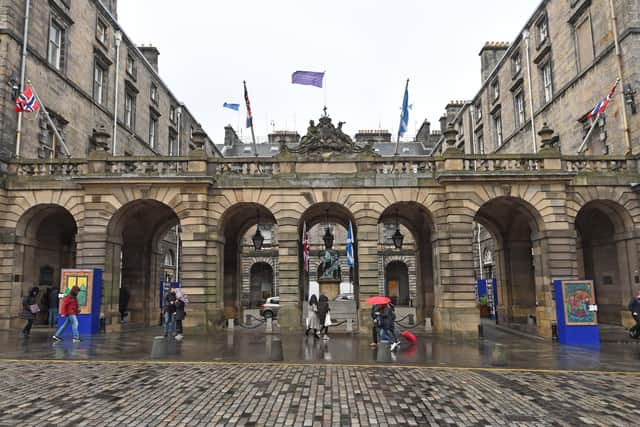Edinburgh Greens want to invest in climate measures and public toilets but increase parking charges
and live on Freeview channel 276
Edinburgh Greens would spend more than £1 million on climate measures, £500,000 on public toilets and £100,000 on increased park lighting in their proposals for the council’s budget for next year.
The party has been in talks with the SNP to see if they can reach agreement on a joint package to present to the full council on Thursday when the 2023/24 budget will be set. The council has to find savings of £76 million from the budget due to the funding squeeze from the Scottish Government.
Advertisement
Hide AdAdvertisement
Hide AdThe Greens say they would spend £1.2 million on climate measures to help Edinburgh reach its target of being net-zero by 2030. These would include “flood adaptation” schemes such as planting more trees in streets and creating rain-gardens in the middle of roads. They would also invest £500,000 on public toilet improvements, including making more of them accessible and installing temporary public toilets in “high footfall areas” during summer months, as happened last year at the Meadows, Leith Links, Inverleith Park and the Pentlands. There would be £100,000 for increased lighting in parks – an issue which has caused strong feelings in several parts of the city; and another £200,000 would be allocated for participatory budgeting, where residents in an area get to decide how money is spent locally.


The party also says it would not go ahead with cuts proposed by officials to speech and language therapy, Education Welfare Officers and the Taxicard scheme for disabled people. They would also maintain the free fares for under-22s on Edinburgh’s trams, which has to be financed by the council because the Scottish Government refuses to extend the under-22s free bus travel to the trams. And they would allocate money for continuing work on restoring a bike hire scheme to the Capital, but not paying for it to go ahead yet.
Meanwhile, they would increase parking charges and other car-related costs. Council house rents would rise to pay for the retro-fitting of energy-saving measures. But they plan to propose council tax measures similar to those put forward by the SNP which would keep bills for people in the lowest property bands while increasing them for people in the top bands.
Councillor Alys Mumford, Edinburgh Green group co-convenor and finance spokesperson, said: “Our budget proposal recognises the need for urgent action for climate and social justice. We are ensuring investment in workers, action to improve Edinburgh’s streets and public green spaces, and spending decisions which prioritise those who are bearing the brunt of continued financial crises.
Advertisement
Hide AdAdvertisement
Hide Ad“Local authorities need more powers, and our Green colleagues at Holyrood are working hard to secure these, but we also need to be more imaginative in how we raise money and decide how to spend it. We’ve got exciting plans to make the most of the devolved powers we have, including reforming council tax to be a more progressive system, increasing parking charges and other car-related costs to ensure that polluters pay more, and making investments that will save us money in the long-term.”
And co-convener and environment spokesperson Councillor Ben Parker stressed the “real and present threat” to Edinburgh of climate change. He said: “Our budget includes over £1m for climate justice including the reinstatement of the decimated climate team, dedicated resources for flood management, and rethinking our roads and pavements to incorporate nature-based solutions to extreme weather.
“Everyone knows local budget finances are stretched, but failure to spend now will only create much more pain in future. The council’s own figures show that without this spending, not only will we renege on our commitments to the 2030 Climate Strategy, but we will end up spending millions of pounds more in dealing with the impacts. For the future wellbeing of the city, and everyone in it, we must prioritise spending to deal with the climate and nature emergencies we can no longer deny.”